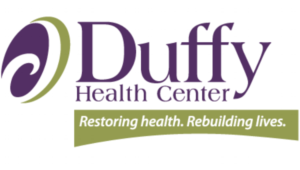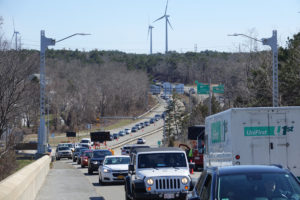
HYANNIS – A nor’easter is set to impact the Cape and Islands on Wednesday, October 27, and with that a coastal flood advisory has been issued by the National Weather Service.
Flood advisories for the region will be in effect until 7 a.m. and from 3 p.m. to 7 p.m. on Wednesday. Advisories from the NWS are not as severe as officially mandated warnings, and are meant to serve as a precaution to residents.
Still, FEMA has reported that floods are the most common natural disaster across the country. If flooding conditions do occur, residents are advised to find safe shelter and to shut off utilities and water safely.
The Better Business Bureau has provided the following tips to ensure that homeowners, business owners, and vehicle owners can stay as safe as possible from floods. The following are tips provided by the organization:
-
Know your local flood zones. Local government will often have flood maps that show which areas are prone to flooding. Knowing if your house or business are located in flood zones will help you best prepare and know what kind of damage to expect.
-
Renovate your basement and its wiring. For those looking to prepare with plenty of time in advance, consider hiring a professional (see tips below) to waterproof your basement and raise your electrical systems and appliances high enough to avoid the average flood levels of your area. Sump pumps can remove standing water—and make sure it has a battery back up.
-
Check your plumbing. During floods, the rising water can push sewage the wrong direction through your plumbing, causing wastewater to come through your drains, toilets, and sinks. Make sure your house or business has backwater (or backflow) valves to stop sewer back ups. Stay proactive to keep your pipes clear to avoid blockage.
-
Install a water alarm. Water alarms can alert you to flooding in lower levels of your house or business, especially useful during flash floods or nighttime flooding.
-
Regularly clean your drains and gutters. If your drainage systems are blocked, water can cause extra damage as it accumulates. Making sure your drainage systems are clean will help keep rain and floodwater from rising at your home.
-
Secure your outdoor belongings. When your weather service alerts you to the potential of flooding, secure indoors your porch and backyard belongings that could be washed away during a flood before evacuation.
-
Elevate your indoor belongings. Besides taking irreplaceable and vital information with you, other valuables or expensive items should be elevated as much as possible. Move furniture, valuables, and appliances above the expected flood level, like to the upper floors of your house.
-
Learn to turn off your utilities and water safely. Water, gas, and electricity don’t mix in flooding, and can cause devastating and unsafe conditions for your home. Learning how to safely turn off your gas, water, and electricity can save you from major damage to your home and business. In the case of a flood warning, shut off your breakers, gas, and water, and unplug everything from the walls if you can do so safely. Never try to turn off or use electricity if you have to stand in water to do so. Never walk into a flooded room if you believe there may be live outlets, appliances, wires, or cords, and avoid touching items connected to live electricity when you’re wet.




















